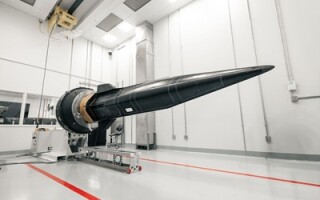Microelectronics workforce effort will be led by Purdue University and DoD
NewsOctober 20, 2020

WEST LAFAYETTE, Ind. Purdue University is at the helm of a national initiative sponsored by the Office of the Secretary of Defense that aims to address and resolve the urgent need for engineering graduates to develop defense technologies, particularly in the area of microelectronics.
The Scalable Asymmetric Lifecycle Engagement Microelectronics Workforce Development program (SCALE) is a $19.2 million, multiuniversity public-private-academic partnership that will be used for workforce development across engineering universities around the U.S. A number of universities are also on board, together with several agencies of the U.S. Department of Defense (DoD), including the Naval Surface Warfare Center (NSWC) Crane Division command.
Alison Smith, education and workforce development colead of the trusted and assured microelectronics program at NSWC Crane, said in a DoD roundtable earlier this year that the U.S. is experiencing a dearth of U.S. talent generation and retention, and that the DoD must work harder to attract, recruit, and retain a workforce willing and able to tackle tough challenges and find innovative solutions.
"The issue is multifold," she said. "Those of us working in national defense technologies have to compete with these thousands of companies that need the same skill sets, some of our needed skill sets are not currently taught in traditional curricula, and these positions are the hardest to fill because the demand is so much greater than the supply. We also have the additional difficulty of only recruiting domestic students. We need both a trained and a clearable workforce. Moreover, the difficulty is compounded for engineers with expertise in cutting-edge microelectronics."
Mark Lewis, acting deputy undersecretary of defense for research and engineering, said of the SCALE project: “The workforce development program will be scalable to be used by any interested higher-education institution. The program will be conducted in partnership with the Naval Surface Warfare Center Crane Division as a nationally coordinated network of government, industry, and university partners, regionally executed." The goal, Lewis said, "is to create an asymmetric workforce advantage in microelectronics."
Universities across the nation will be involved in specific areas of microelectronics education and workforce development critical to national security, starting with:
- Radiation hardening of microelectronics will include Vanderbilt University (lead), the Air Force Institute of Technology, St. Louis University, Brigham Young University, Georgia Institute of Technology, SUNY-Binghamton, Arizona State University, Indiana University, the University of Tennessee at Chattanooga, and New Mexico State University.
- Heterogeneous integration of electronics, which includes Purdue University (lead), Georgia Institute of Technology, Binghamton University-State University of New York, and Arizona State University.
- System-on-a-chip electronics, which includes Ohio State University (lead); Georgia Institute of Technology; Purdue University and the University of California, Berkeley.
“Today’s engineering students are energized by the grand challenges facing the nation,” says Mark Lundstrom, acting dean of the Purdue College of Engineering and the Don and Carol Scifres Distinguished Professor of Electrical and Computer Engineering. “To create this urgently needed U.S. workforce for microelectronics, SCALE partners will work with students across the nation to build strong relationships with government and the defense industrial base and to develop the new technologies needed for secure and resilient microelectronics.”






